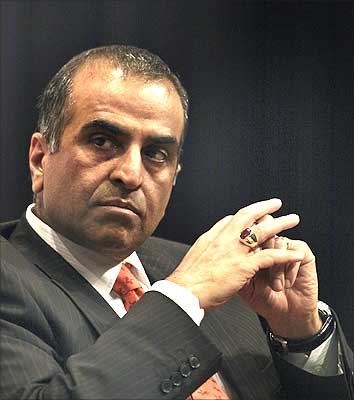After Trump's visa restrictions, will India ban facebook, whatsapp and Google?
As the US under President Donald Trump turns more protectionist, telecom czar Sunil Bharti Mittal on Friday asked if India should say no to Facebook and Google just because it has similar homegrown apps.
Not overly concerned about protectionism as his business is "rooted in the domestic market", Mittal highlighted that it is unfair that movement of Indian workers gets restricted, while foreign firms make huge profits in India.
"If you come to a situation where skilled workers which actually drive your economy back home are going to be denied (entry) or Indian companies are forced to pay a particular salary just to become uncompetitive in those countries, I think that becomes an affirmative action against the companies that want to do trade there," he said.
He was responding to a question on how he would react if Bharti Airtel was not allowed to operate in certain geographies. Citing examples of tech firms like Google, Facebook and WhatsApp that have millions of users in India, Mittal questioned if these companies should be allowed to operate in India even as similar homegrown apps are already there in the country.
"You can't have (a situation) that on one hand and you have 200 million customers on Facebook, 150 million on WhatsApp, 100 million people on Google... Would we say we don't want FaceBook (and) Google to operate in India, we have homegrown apps," the Bharti Airtel Chairman said.
Mittal said India is a big market for technology companies given the huge consumer base. Over the past few weeks, countries like the US, Singapore and Australia have taken steps to tighten their work visa norms. This could potentially impact the operating costs for Indian IT companies that send employees to work on client sites using visas.
Not overly concerned about protectionism as his business is "rooted in the domestic market", Mittal highlighted that it is unfair that movement of Indian workers gets restricted, while foreign firms make huge profits in India.
"If you come to a situation where skilled workers which actually drive your economy back home are going to be denied (entry) or Indian companies are forced to pay a particular salary just to become uncompetitive in those countries, I think that becomes an affirmative action against the companies that want to do trade there," he said.
He was responding to a question on how he would react if Bharti Airtel was not allowed to operate in certain geographies. Citing examples of tech firms like Google, Facebook and WhatsApp that have millions of users in India, Mittal questioned if these companies should be allowed to operate in India even as similar homegrown apps are already there in the country.
"You can't have (a situation) that on one hand and you have 200 million customers on Facebook, 150 million on WhatsApp, 100 million people on Google... Would we say we don't want FaceBook (and) Google to operate in India, we have homegrown apps," the Bharti Airtel Chairman said.
Mittal said India is a big market for technology companies given the huge consumer base. Over the past few weeks, countries like the US, Singapore and Australia have taken steps to tighten their work visa norms. This could potentially impact the operating costs for Indian IT companies that send employees to work on client sites using visas.




